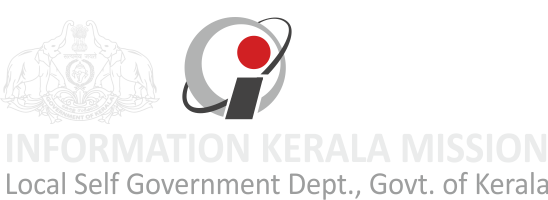The Information Kerala Mission (IKM) has been set up by the State Government with the sole objective of computerising local bodies. A comprehensive programme for the project has already been prepared. This shall include
- Linking up one thousand two hundred and fourteen local bodies with the District Planning Offices and the State Planning Board.
- Developing around eleven different applications for deployment at the local body level.
- Establishing twenty nine training centers in engineering colleges, polytechnics and other institutions and training around one and a half lakh people in various aspects of software and hardware.
- Establishing district level help desks at fourteen selected engineering colleges and polytechnics.
- Positioning at least one hundred and sixty six selected professionals well versed in network management, system administration, and database administration for providing all round support in setting up and maintaining the wide area network.
- Deploying the applications at one thousand two hundred and fourteen local bodies, fourteen district planning offices and the
State Planning Board.
In terms of both coverage and scope IKM has emerged as the biggest Information and Communication Technology (ICT) deployment programme taken up in the state so far.
The IKM has been initiated as a sequel to the peoples’ plan campaign, which has already brought about sweeping changes in the functioning of the local bodies. With substantial devolution of financial resources, redeployment of personnel, transfer of functions and powers to local body institutions and the administrative reform measures initiated the peoples’ plan campaign has become a historic initiative in participatory development. The IKM has tried to imbibe the spirit of the peoples’ plan campaign and has come up with an innovative, holistic and participatory information communication technology deployment programme. The mission, if successfully implemented, can by itself create history in participative electronic governance (e-governance) as well as in human centered social informatics system building. IKM is aimed at creating information systems capable of strengthening the grass root level peoples’ plan organisation covering grama sabhas and ward sabhas, making the local body institutions more responsive and efficient, and developing mechanisms for improving transparency and ensuring the right to information of the community at large. For this, the mission is banking upon a local social organisation which has demonstrated its maturity and inner strengths through pioneering initiatives like total literacy programme and the peoples’ plan programme.
Realising the difficulties of implementing an ICT programme in a state with very small industry to back up, the IKM has taken adequate care to establish linkages and release synergies from various ICT establishments and professional groups in the state. Further it is also planned to dovetail into an overall programme of government computerisation centered around the establishment of community ICT kiosks. Given the role of ICT in creating knowledge societies in the next millennium and the central role of the peoples’ planning programme in overcoming the development embargo that has gripped the State in the last few years, the IKM experiment can turn out to be a major initiative in the State’s development paradigm (Government of Kerala, 1999).
Table of Contents
Introduction
A Model for participatory electronic governance in a local body
- The Genesis
- The Design of the experiment
- The implementation
» Initial interaction with local community
» Proof of concept demonstration
» Preliminary hands-on training
» Initial documentation of local body systems
» Participatory analysis of local body systems
» Second level hands-on training and exposure to technology
» Detailed participatory analysis
» Fixing the priorities for computerisation at the end-user level
» System design
» Implementation - Results and inference
From Kumarakom to the Information Kerala Mission
- The project – Kerala Information Network for local bodies
- The formation of the mission
- The objectives of the mission
The methodology of the Information Kerala Mission
- The elements of the mission
- The methodology
» Software Development
» Training
» Support
Context of the methodology
- The experience of government computerisation
- Towards participatory electronic governance
- Problems of business process re-engineering
The present status of the project
- Application software development and product integration
- Handholding and training programme
- Handling the Malayalam interface
The Pilot rollout
- Towards rollout and implementation
Appendices
- Evolution and objectives of the SLIDE project
» SLIDE project : evolution
» SLIDE project : objectives
» SLIDE project : expected output - A broad outline of topics for training
Tables
- Topics and subsystems proposed in the “Study on a strategy for computerised operations and systems for transactions for local bodies”
- Category-wise distribution of personal to be trained before March 2001
- Particulars of applications to be developed by IKM
Figures
- Process flow for participatory technology development
- Participatory methodology for application development
- The Information Kerala Mission network
- Variation of implementation person weeks with size of support team
- Training and Support : Critical Linkages
- Operation design of the Training Programme
